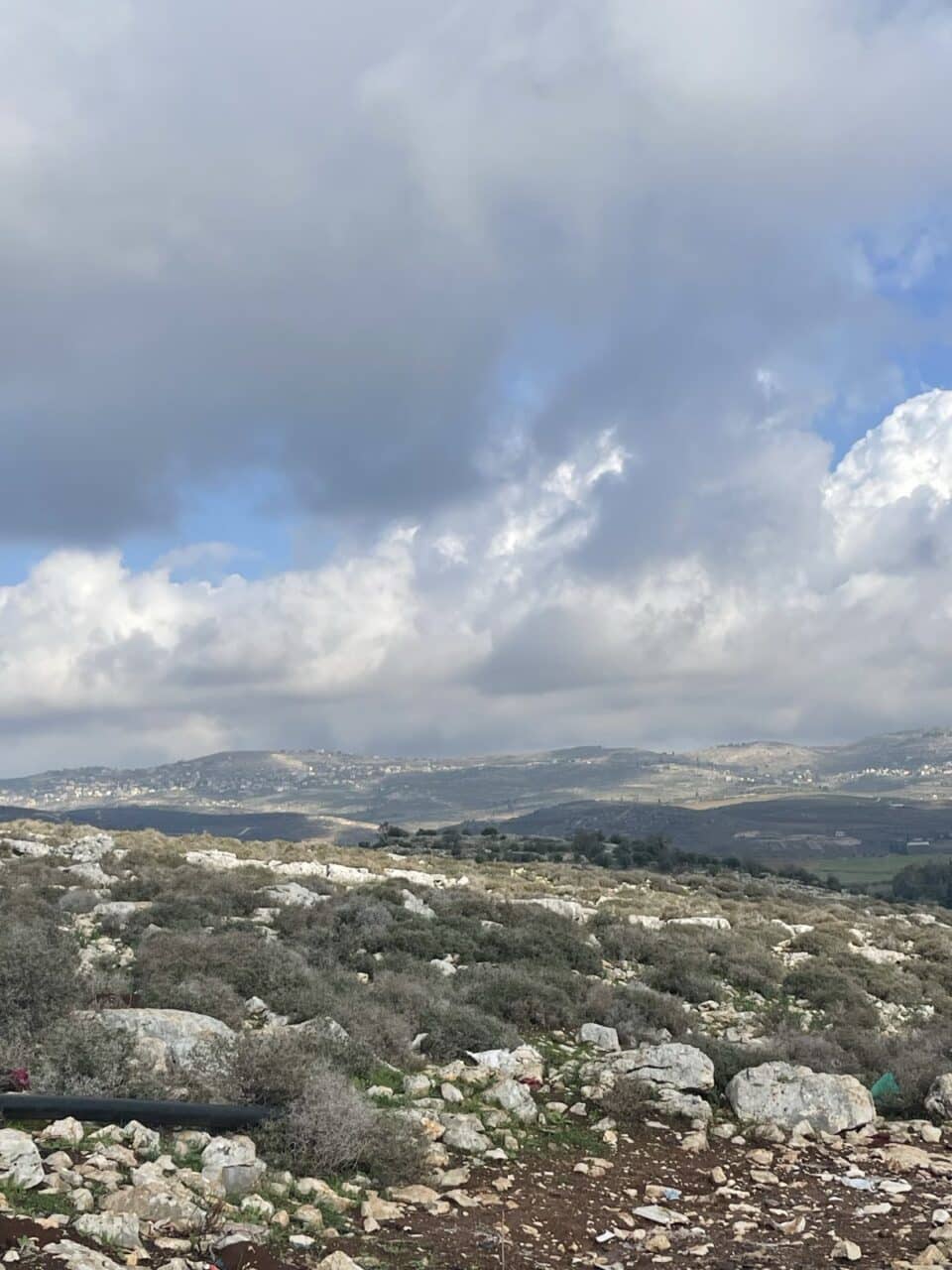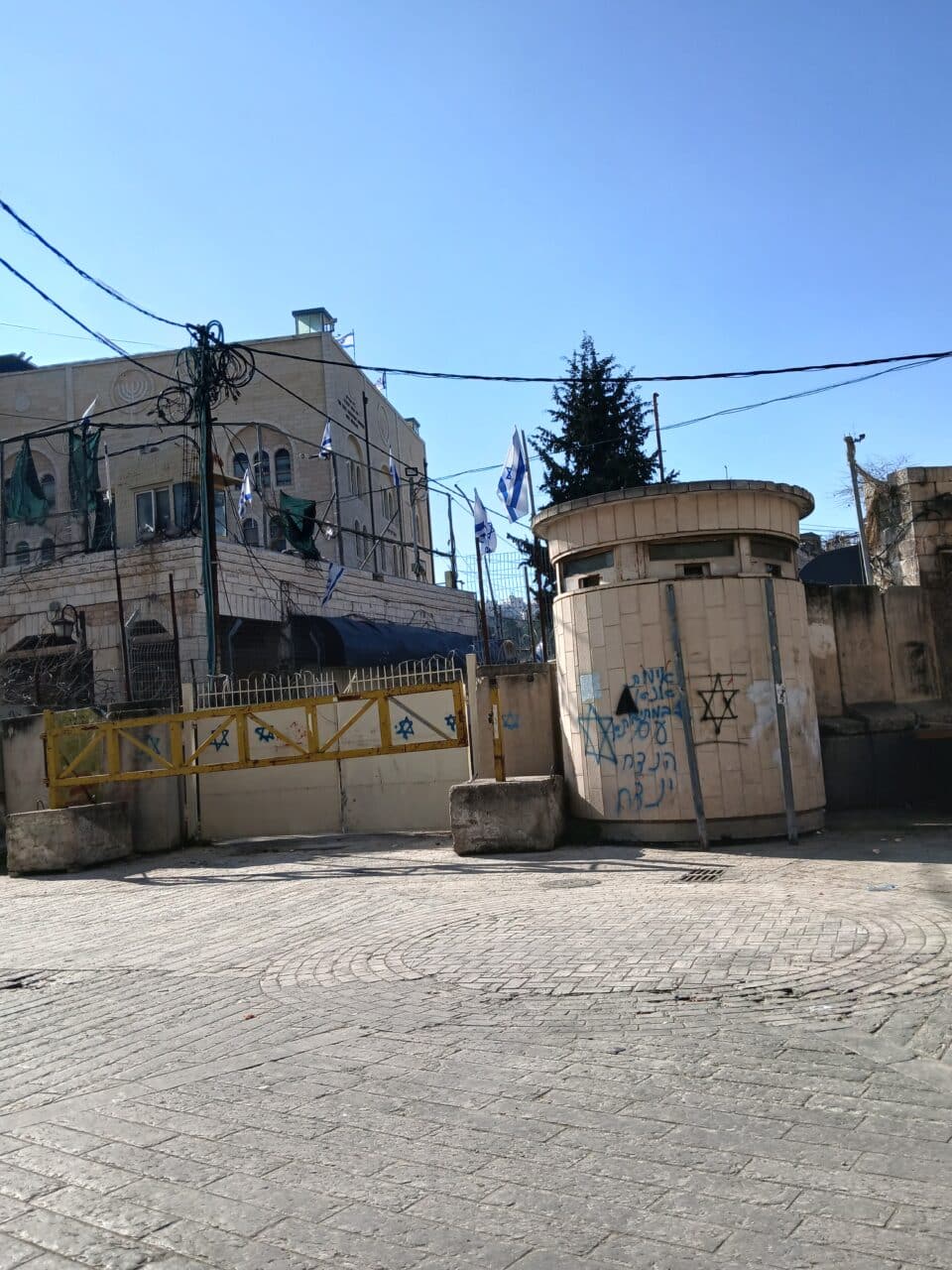Category: Journals
-

Activist journal: attack on Deir Sharaf
Thursday the 9th of January was a bad day for the community of Deir Sharaf. It started around 13:30 when masked settlers were seen from the house of a family that had already been brutally attacked in November. From their house there’s a view of two hills and a group of settlers, between 12 and…
-

Visual diary: a day in Umm al-Khair
4 January 2026 Good morning from Umm Al-Khair. This is the village where Awdah Hathaleen was born, did community organizing, started a family, was involved with the production of the Oscar-winning film “No Other Land,” and then on July 28th, 2025 was murdered by a settler. Many, many international activists from all over the world…
-

Visual diary: a day in occupied Al Khalil
Friday, 26 December, 2025 Good evening from Al Khalil! It’s a really beautiful city, and has been suffering severely from the combination of colonization and lack of tourism post-Oct 7. Shop doors welded shut by the occupation to prevent Palestinians from making a living in the Old City, with layers of graffiti revealing resistance and…
